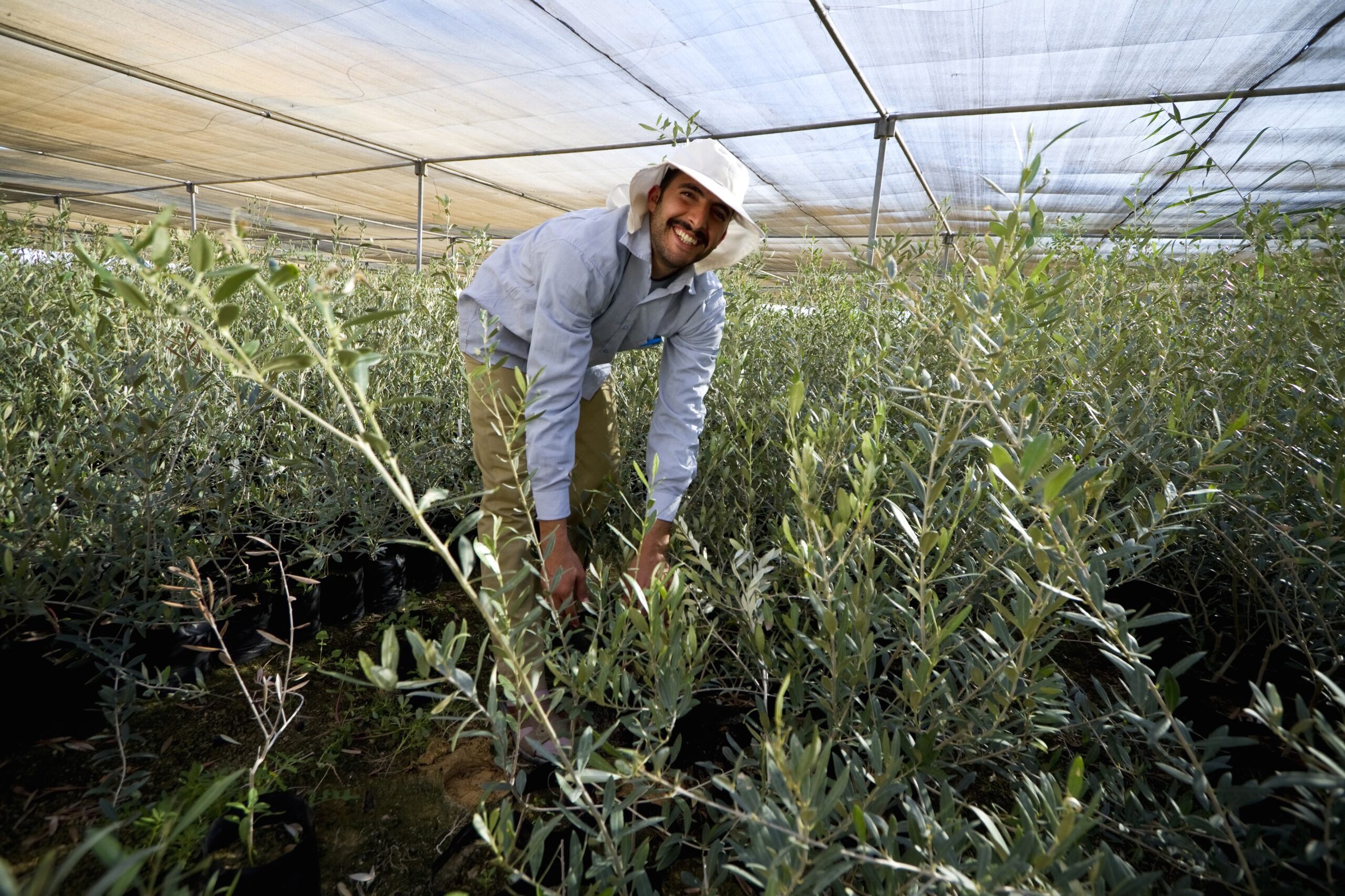Zaytun Project
Egypt
Overview
CNFA implemented the two-year, $3.2 million USAID-funded Zaytun Project (2011-2013) to strengthen strategic components of the table olive and olive oil value chains in the regions of Nubaria and Matrouh through the delivery of targeted technical assistance to small and medium Egyptian olive processors and training with complimentary grants-matching assistance to smallholder olive farmers.
Impact
- 3,929 farmers trained in production across the entire olive crop cycle, exceeding project goals of training 2,900 farmers
- $229,100 in grants awarded to growers’ associations
- $301,662 in matching contributions, bringing the total investment into the post-harvest training and infrastructure to $530,762
- 55% increase in production for farms participating in the crop cycle training program
- $6.2 million increase in sales for project beneficiaries resulted from the increase introduction and price per ton to the productive acreage (about 27,000 feddans)
- 60% increase in income, far exceeding the Zaytun Project’s goal of 30%
- 7.8% increase in production for beneficiaries in comparison to the previous year’s production of $5.24 million

Working with local partners like the Egyptian Banking Institute and the Egyptian Olive Council, the Zaytun Project addressed short-term problems that olive producers and processors face, while simultaneously laying the groundwork for long-term sustainable development. In collaboration with these partners, CNFA designed a strong, value-chain-based program that strengthened production and post-harvest practices of olive farmers, delivered technical assistance and training to small and medium-sized table olive oil and olive oil processors and facilitated business linkages between supported olive growers’ associations and processors. Through various policy initiatives, the Zaytun Project increased expansion into higher-value export markets and improved the reputation and image of the Egyptian olive industry.
The Zaytun Project brought Egyptian olive oil to the international stage. In collaboration with the Chamber of Food Industry, the Project developed an olive industry website to increase the exposure of the Egyptian olive sector. The success of project-sponsored processors at an international olive oil competition marked an important step in establishing the reputation of Egyptian olive oil internationally, as well as introducing a new identity of Egyptian olive oil on the international market. After this success in 2013, it is likely new categories will be created for North African olive oils in next year’s competition.
Approach
- Strengthened Producers: The Zaytun Project strengthened smallholder olive producers through assistance in production practices, post-harvest handling and organized producers into viable growers’ associations. The project orchestrates intensive training, technical assistance, association development and study tour activities to educate olive producers on best practice techniques. The core training activity was a Farm Field School (FFS) training program, where a tiered design allowed the lessons of a few technical specialists to reach thousands of farmers. The Project compiled a manual in Arabic and English to ensure these experts could carry lessons into future training programs. Additionally, the Zaytun Project awarded four one-to-one grants to farmers’ associations that resulted in the creation and upgrade of several micro-processing units for pickling olives, as well as the funding for two composting projects. Finally, the Zaytun Project facilitated a study tour in Italy to further strengthen farm management and collective marketing of olives.
- Strengthened Processors: After an intensive selection phase, the Zaytun Projects strengthened olive processors through technical assistance to improve quality and engaged in value addition that led to increased exports, profits and employment. The project chose 15 processor companies to participate in a series of technical assistance, training, and trade show activities. Two international experts served as consultants for these processors and directly addressed the individual obstacles facing each business. An additional marketing consultant was hired to assess the production and marketing of olive oil products, provide marketing advice, and collect oil samples for entrance into an international competition. The Zaytun Project compiled a manual to ensure the advice of the consultants could be preserved and easily distributed. A supplementary training session on agrofinance was organized with four Egyptian banks that resulted in the creation of the first working capital loan projects for the olive sector in the country. Through targeted training and technical assistance, the Zaytun Project fortified the techniques and opportunities of Egyptian olive processing companies.
- Strengthened Market Linkages: The Zaytun Project facilitated producer-processor linkages through the creation of direct relationships, resulting in an improved olive supply, strengthened commercial relations and increased sales and incomes for producers and processors. The Project also hosted a total of four market linkage workshops to bring together olive producers and processors. CNFA worked directly with producer and processor representatives with the objective of facilitating business linkages between Egyptian olive farmers and processors.

